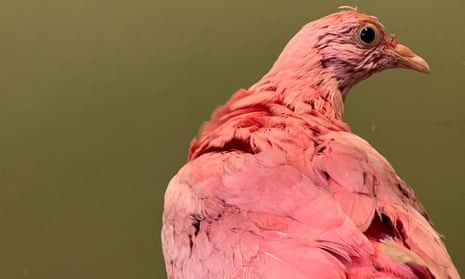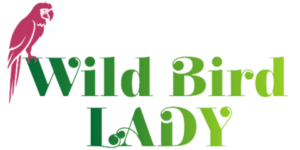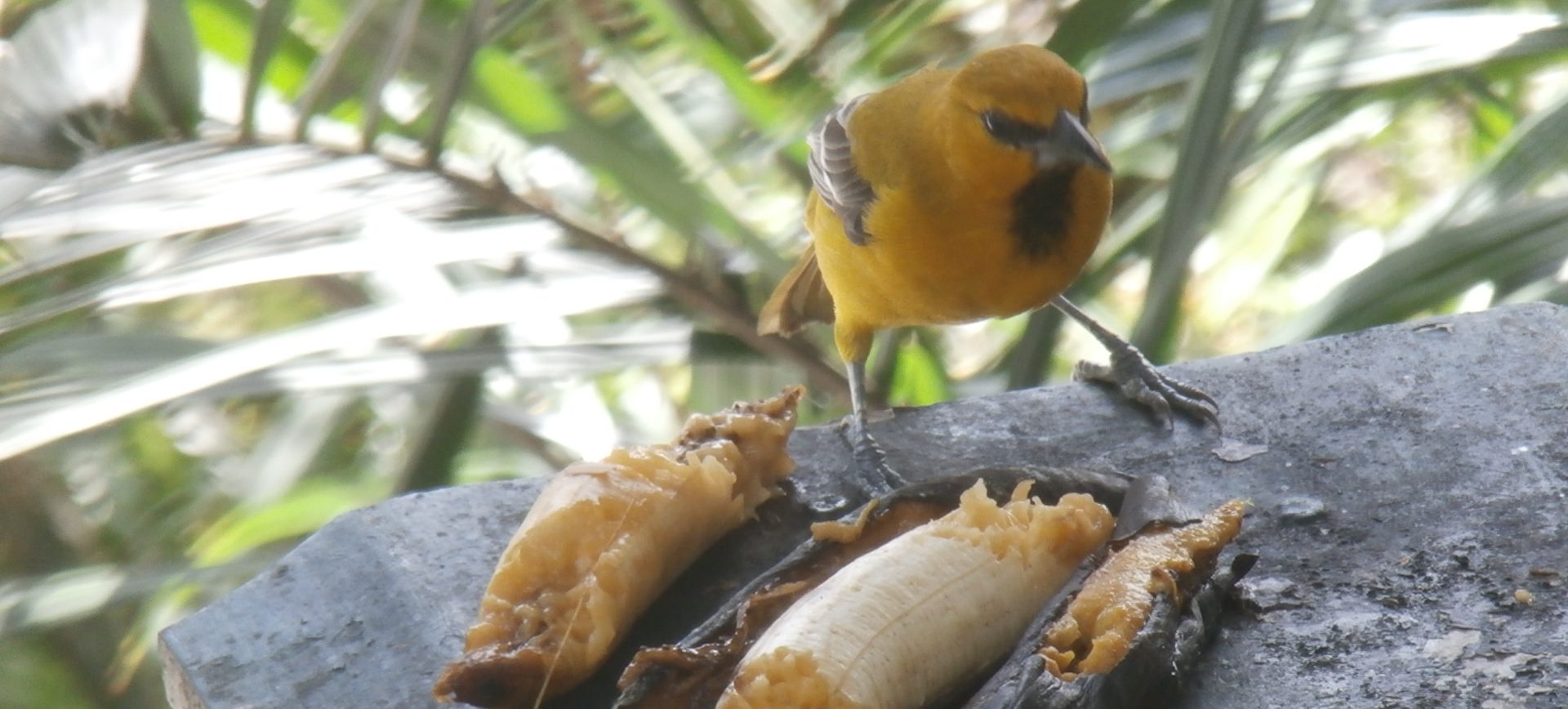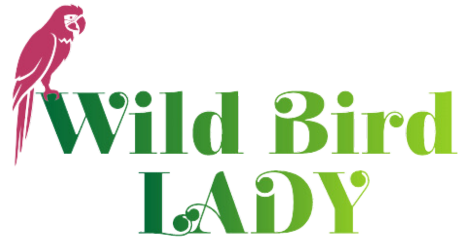Doves in the wild primarily eat seeds and grains. In addition, they may also consume fruits and insects depending on their natural habitat and available resources.
Doves are common birds that are found all over the world in various habitats. Their natural diet consists primarily of seeds, such as millet, sunflower, and wheat. In the wild, doves feed on a variety of grasses, plants, and grains that are found in their environment.
They are also known to supplement their diet with fruits and insects when they are available. Doves are adapted to pecking and feeding on the ground, which is why they are often found in fields, gardens, and open areas. Understanding the natural diet of doves is important for those who raise them in captivity or wish to attract them to their yards for bird-watching purposes. Providing a suitable diet for doves in captivity is essential for their growth, development, and overall health.

Credit: www.theguardian.com
Evolution Of Dove’S Diet
The natural diet of doves: revealing the wild’s best kept secret
Doves have always been fascinating creatures, known for their gentle cooing and feathered beauty. But there is much more to these birds than meets the eye. Did you know that doves have a natural diet that has been shaping their evolution for centuries?
In this blog post, we are going to uncover the secrets of the dove’s diet and its ecological significance.
Discovery And Adaptation Of Seed-Feeding By Doves
Believe it or not, doves are not carnivorous birds. In fact, they have adapted to seed-feeding, which has become their primary source of food. This adaptation was not immediate, but rather an evolutionary process that took time. Here are a few key points to help you understand how doves evolved into seed-eating birds:
- Doves’ ancestors were birds that lived in trees and fed on insects.
- As these trees vanished, these birds migrated to the ground, where they started foraging for food.
- Over time, they discovered that seeds, which were readily available on the ground, were an excellent source of nutrition.
- Thus, the process of adaptation from insect-eaters to seed-eaters began.
- This adaptation led to the evolution of robust beaks and powerful digestive systems that could handle the tough seeds.
Comparison Of Modern-Day House Dove’S Diet Vs. Wild Doves
If you have ever owned a dove, you might have noticed that it ate a lot of birdseed. But do you know whether this is the same diet as wild doves? Here are a few differences between the modern-day house dove’s diet and that of wild doves:
- Wild doves feed on a variety of seeds, while a house dove’s diet is limited to the seed mix it is given.
- Wild doves can also feed on fruits, berries, and insects, depending on the season.
- In contrast, a house dove’s diet is mostly composed of commercial birdseed, which can lack nutritional diversity.
- This lack of nutritional diversity can affect the health and well-being of house doves in the long run.
Ecological Significance And Impact Of Seed Feeding
The evolution of seed-feeding in doves has had a significant ecological impact. Here are some points that highlight its importance:
- Doves play a critical role in seed dispersal, helping to propagate plant species by spreading their seeds.
- Seed feeding is typically considered safe for the environment compared to hunting or farming animals for our consumption, as it does not lead to extensive habitat destruction.
- Doves have become a crucial prey for predators such as hawks, eagles, and owls, leading to the restoration of natural predator-prey relationships in many ecosystems.
The natural diet of doves is a fascinating story of adaptation, evolution, and ecological significance. Wild doves have a diverse diet that is essential for their health, and their ability to disperse seeds makes them significant contributors to their ecosystem.
So, the next time you see a dove, remember that it is not just a beautiful bird but also an essential player in the intricate web of nature.
Nutritional Value Of Dove’S Diet
The natural diet of doves: revealing the wild’s best kept secret
Doves are fascinating birds that are widely prevalent throughout the world. They are known for their unique food habits and are adapted to a specific diet, which is often found in the wild. In this blog post, we will explore the nutritional value of dove’s diet and how it compares to common commercial feeds, as well as the importance of a well-rounded diet for the bird’s health and reproduction.
Breakdown Of Nutrients Present In Dove’S Natural Diet
Doves are seed-eating birds that prefer a diet rich in carbohydrates, fats, and proteins. Their natural diet includes various grasses, seeds, and grains, which are high in fiber and provide essential amino acids, vitamins, and minerals. Following is the breakdown of nutrients present in dove’s natural diet:
- Carbohydrates: Doves require an ample amount of carbohydrates for energy, and they fulfill their energy needs through the consumption of seeds and grains. The natural diet of the dove is rich in carbohydrates
- Proteins: For growth, maintenance, and reproduction, doves need proteins. The seeds and grains found in the bird’s natural diet are high in protein, providing the bird with necessary amino acids for proper growth and development.
- Fats: Doves also need fats to maintain healthy feathers and skin. Their diet contains seeds, which are rich in fats, providing them with an excellent source of energy.
Comparison With Common Commercial Feeds
Dove owners often feed their birds with various commercial feeds, such as millet and sunflower seeds. However, a diet that only consists of these commercial feeds might not provide the bird with all the nutrients it needs. Here’s how the natural diet of doves compares to these commercial feeds:
- Millet: Millet is widely fed to doves; however, it is low in protein, and carbohydrates aren’t sufficient. It also lacks essential nutrients, such as vitamins and minerals.
- Sunflower seeds: Sunflower seeds are high in oils, which can lead to obesity and other health issues. They are also low in certain vitamins and minerals necessary for dove’s health.
Importance Of A Well-Rounded Diet For Bird’S Health And Reproduction
A well-rounded diet is essential for a dove’s health and reproduction. A balanced diet provides all the necessary nutrients, vitamins, and minerals that help the birds maintain healthy skin, feathers, and muscles. It also promotes healthy growth and reproduction.
However, it’s crucial to keep in mind that each bird may have different dietary needs. Some birds might prefer a diet heavy in carbohydrates; some might need more proteins; some might need more fats. Therefore, it’s essential to observe the bird’s eating habits and provide them with a balanced and varied diet to keep them healthy.
A dove’s natural diet provides it with all the nutrients it needs to maintain healthy growth and reproduction. While commercial feeds might seem like an easy option for dove owners, a well-rounded and varied diet is essential for the bird’s health and wellbeing.
By providing your dove with a balanced diet that includes a mix of seeds, grains, and vegetables, you can ensure they thrive.
Identifying Dove’S Natural Diet
Recognizing Natural Food Sources For Doves In The Wild
Doves are fascinating creatures with a varied diet that helps them survive in the wild. Some of the common natural food sources for doves include:
- Seeds: Doves have a seed-based diet and feed on a wide variety of seeds, including sunflower, millet, corn, and wheat.
- Berries and fruits: They also enjoy eating berries and fruits, including grapes, cherries, raspberries, blueberries, and apples.
- Insects: Doves feed on insects such as grasshoppers, beetles, ants, and caterpillars.
- Grain crops: Doves may feast on grain crops that are grown for human consumption, including wheat, corn, and barley.
Techniques To Observe And Identify Dietary Preferences Of Birds
Here are some techniques to observe and identify the dietary preferences of birds, including doves:
- Food habits: Observing the food habits of birds is an excellent way to identify their dietary preferences. You can note down the type of food they eat and monitor the frequency of their visits to specific food sources.
- Feeding behavior: Observing the feeding behavior of the doves can also help identify their dietary preferences. You can note the time of day they feed and what they eat.
- Droppings: The droppings of birds can also provide useful information about their dietary preferences. You can identify the type of food they have been eating by studying their droppings.
How To Provide A Natural Diet For Captive Doves
If you have captive doves, it is essential to provide them with a natural diet that meets their nutritional needs. Here are some tips to follow when feeding captive doves:
- Feed them a variety of seeds, such as sunflower, millet, and corn, and ensure they have access to clean water.
- Offer fruits and vegetables, such as apples, carrots, and dark leafy greens, as a supplement to their seed-based diet.
- Provide insects, such as crickets and mealworms, as a source of protein.
- Avoid feeding your doves commercial bird seed mixes that may contain processed and artificially flavored ingredients.
By following these guidelines, you can ensure your captive doves receive a healthy and natural diet that mimics their diet in the wild.
Recommendations For Feeding Doves
Feeding Regimens For Bird Feeders
Doves can feed on natural foods like seeds, berries, and insects. However, bird feeders in residential areas can supplement their diet with seeds and nuts to help them during harsh weather conditions. Here are some recommendations for feeding doves:
- Schedule feeding in the early morning or late evening when doves are awake and looking for food.
- Place the bird feeder in a quiet and undisturbed area.
- Refill feeders every alternate day to ensure a consistent supply of food.
Proper Selection Of Seeds And Supplements
Doves have a small beak and lack teeth. Therefore, it’s essential to offer them the right type of seed and supplement that’s smaller in size but packed with nutrients.
- Seeds: Doves love smaller seeds like sunflower, millet, and safflower seeds. Do not offer large seeds like corn and wheat, as they can cause choking hazards.
- Supplements: Doves love grit and oyster shells, which aid in their digestion and provide essential minerals. Calcium supplements are great for their bone health.
Dos And Don’Ts Of Feeding Wild And Captive Doves
Feeding doves can be a great way to observe them from close quarters. However, it’s crucial to know what to do and avoid when feeding them.
Do’s:
- Always offer fresh and clean water along with food.
- Clean the bird feeders regularly to avoid mold and contamination.
- Observe and enjoy them from a distance to prevent interference with their natural behavior.
Don’ts:
- Do not offer bread and leftovers as they lack essential nutrients and can cause harm to their digestive system.
- Do not feed them too much, as it can lead to obesity and other health issues.
- Never force-feed them or interfere with their nesting and breeding activities.
By following these simple feeding recommendations, you can ensure that doves in your area are well-fed and healthy, while also enjoying their peaceful presence.
Frequently Asked Questions On The Natural Diet Of Doves: What They Eat In The Wild
What Do Doves Eat In The Wild?
Doves typically eat seeds, fruits, and plants in the wild. They love eating grains such as millet, corn, wheat, and sorghum. They also eat insects to meet their protein requirements.
Can Doves Eat Birdseed?
Yes, doves can eat birdseed, but it’s recommended to give them a mix of birdseed and other foods such as cracked corn and millet. A varied diet provides them with the necessary nutrients they need to stay healthy.
What Vegetables Can Doves Eat?
Doves can eat a variety of vegetables, including carrots, spinach, kale, dandelion leaves, and zucchini. Make sure the vegetables are washed and cut into small pieces before feeding them to your doves.
What Should I Avoid Feeding My Doves?
Avoid feeding doves avocados, chocolate, and caffeine as it can cause harm to their health. Additionally, spicy or salty food should be avoided to prevent digestive problems.
How Much Should I Feed My Doves?
The amount of food needed for doves depends on their size, activity level, and the quality of the food offered. As a general rule, 1-2 tablespoons of birdseed and other foods per day is enough for a single dove.
Conclusion
As we conclude on what doves eat in the wild, it’s important to note the significance of their natural diet. It’s essential to mimic these feeding habits as closely as possible to ensure that our pet doves are happy and healthy.
Feed them a diet consisting mainly of seeds, grains, and leafy greens, and always ensure that their water is fresh and clean. Avoid feeding them processed foods such as bread and sugary treats as these can cause health issues in the long run.
Doves are fantastic fliers, and their incredible journeys require a diet that provides ample energy and nutrients. Moreover, by understanding their natural feeding habits, we can better appreciate and care for these marvelous creatures. Overall, we hope this article has provided useful insights into what doves eat in the wild and how we can replicate that in captivity.
Latest Posts
The Ultimate List: Top 8 Best Birdwatching Podcasts for Avid Birders
Looking for the top birdwatching podcasts? Here are the eight best options to tune into today! Birdwatching can be a thrilling, immersive experience that brings...
Stop Squirrels in Their Tracks: 10 Effective Ways to Safeguard Your Bird Feeder Pole
To prevent squirrels from climbing your bird feeder pole, use squirrel baffles and slippery poles. Here are ten effective ways to keep squirrels from stealing bird food and damaging bird feeders. ...


